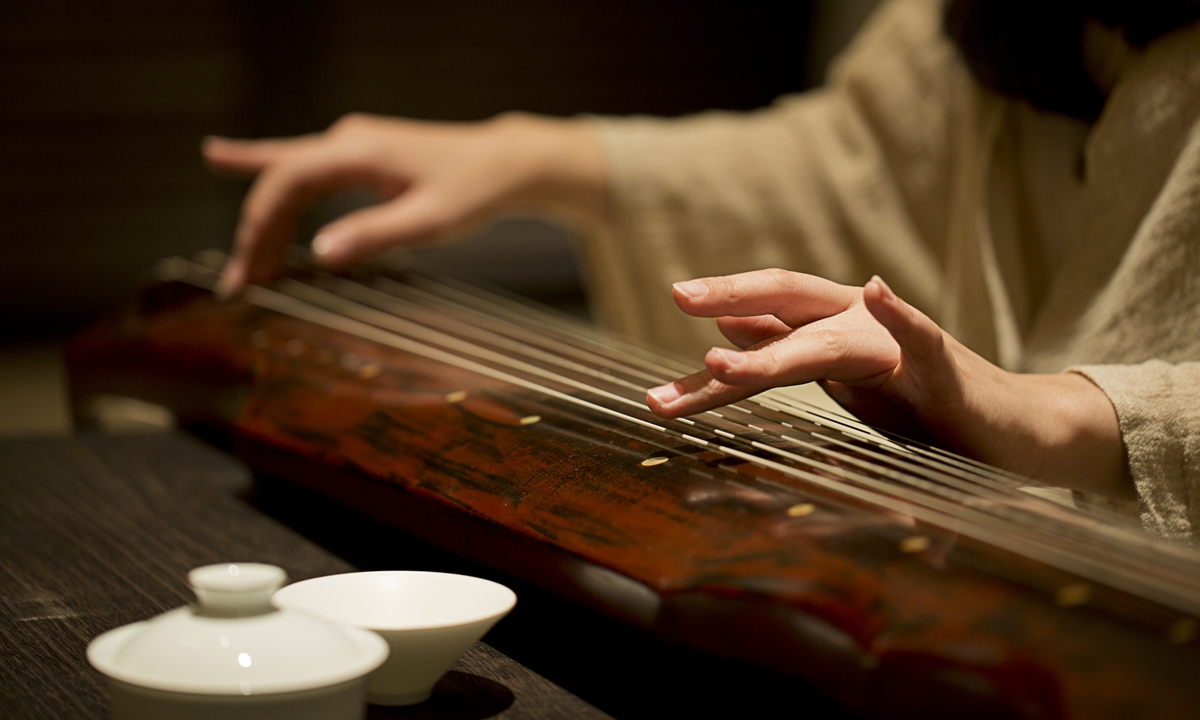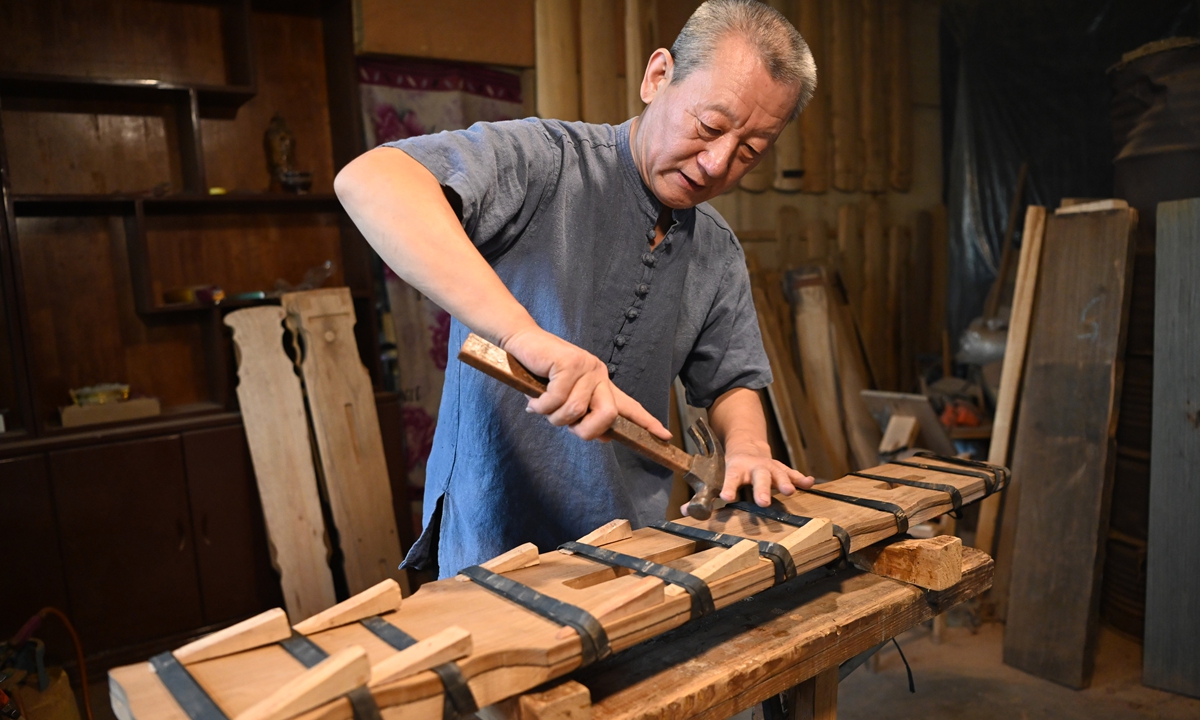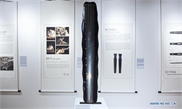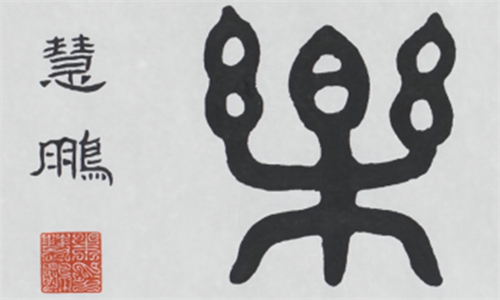
A woman plays the guqin Photo: VCG
When French President Emmanuel Macron visited China in early April, he enjoyed a music performance during his trip to Guangzhou, capital of South China's Guangdong Province.
The artist played Chinese music "High Mountains and Flowing Water" with a 1,267-year-old Chinese instrument guqin.
The guqin is a seven-stringed plucked instrument and one of the oldest Chinese musical instruments, having been passed down for more than 3,000 years, which is the jewel of traditional Chinese music culture.
"In recent years, the guqin has become more and more popular, and gradually developing from a niche cultural object to a popular item. People are taking notice and learning this ancient instrument," young guqin artist Yan Chao, who runs a guqin training center in Beijing, told the Global Times in an interview earlier this week.
Guqin's rejuvenation
"In recent years many people started to come to the training studio to learn guqin thanks to the revival of traditional Chinese culture," Yan said.
Many years ago, Yan began studying playing the guqin. But before learning to play the guqin, he had more than 10 years of experience with another Chinese traditional music instrument pipa.
In 2016, Yan set up a guqin training class in Beijing, hoping to bring the guqin to the public.
"After the guqin class opened, it attracted mainly adults from 20 to 50 years of age," Yan added. 
A man is making a guqin Photo: VCG
Students at Yan's guqin class are mainly Chinese traditional culture enthusiasts, adults between 20 to 30 years of age influenced by Chinese costume dramas, as the guqin appears in many Chinese drama episodes.
Some elder enthusiasts who learn to play the guqin are hoping to start a hobby with the Chinese instrument.
When it comes to why the guqin is becoming more and more popular, Yan said the public mindset plays a big role.
"I think this is the change in social opinion and values in recent years. People used to think that playing Western musical instruments has more value. But now it is different, people are increasingly accepting of China's own national things. In other words, people's knowledge of the value of traditional Chinese culture is getting deeper and deeper," Yan told the Global Times.
In addition to a nationwide boom in guqin learning, the guqin-making industry is also fast developing around the country.
In Yangzhou, East China's Jiangsu Province, dubbed the biggest guqin-producing place, there are more than 300 guqin factories.
"The demand for the guqin is gradually increasing since the successful inscription to the list of the Intangible Cultural Heritage of Humanity," Fan Xiaobing, a manager of a guqin factory in Yangzhou, told the Global Times.
The increase in the number of guqin manufacturers is a sign of market demand and a reflection of the growing enthusiasm for learning to play the guqin.
Emotional relief
There are two young people in the Beijing Guqin Culture Museum who aspire to learn to play the guqin and are fascinated by its elegant style and profound cultural heritage.
"The guqin is an artistic and cultural instrument, and the key to learning to play the guqin is how to express the connotations of ancient music with your own emotions," visitor Dong Ni told the Global Times.
Dong is in her 30s. She believes that compared with other traditional instruments such as the pipa and guzheng, the guqin can make her happier and improve her cultural knowledge.
"Nowadays, people suffer from too much pressure, but when I play the guqin after a day of work, the sound of the instrument seems to be speaking to me, and I soon find myself relaxed," she told the Global Times.
"Through playing the guqin, I have more knowledge and understanding of traditional culture. Because the guqin is inextricably linked to poetry, painting, calligraphy and history, these elements complement each other, so I can say that the guqin has opened a door to traditional Chinese culture for me," said Dong.
The guqin is the earliest plucked instrument and it has deep cultural roots in China. Unlike other musical instruments, the guqin is more about the dialogue between the player and the audience's own soul.
"I used to listen to pop music, which made me feel excited. Now that I have learned the guqin, the sound is particularly comfortable and peaceful," said Ren Ming, 28, who has studied the guqin for two years.
"The sound of the guqin can be integrated into my soul, and this is what I want," she added.



